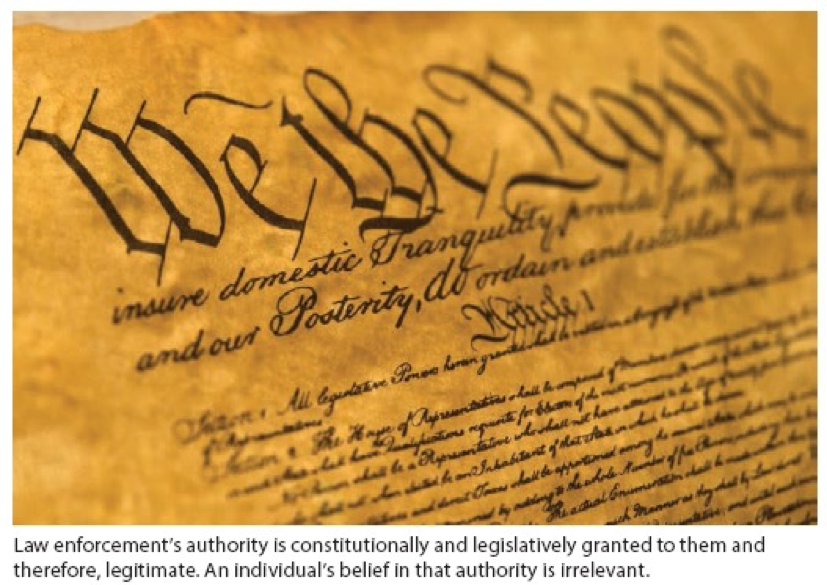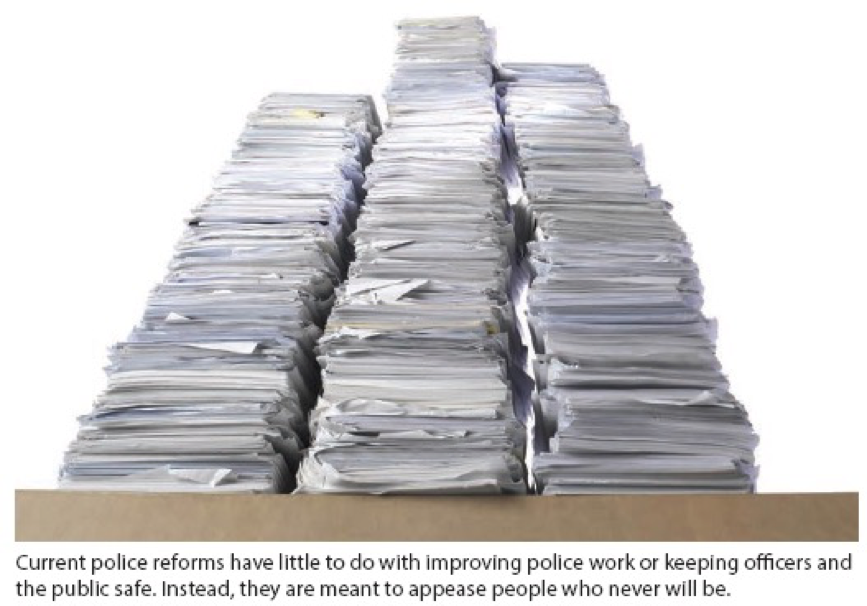Title
Straight Talk - June 2017

Body
A potentially brighter future is on the horizon for law enforcement. Recently, Attorney General Jeff Sessions released a memorandum in “Support of Federal, State, Local and Tribal Law Enforcement.” This memo sets forth several principles aimed at promoting a peaceful and lawful society. Several of these principles are as follows:
- The safety and protection of the public are the paramount concern and duty of law enforcement officials.
- Law enforcement officers perform uniquely dangerous tasks, and the Department should help promote officer safety, officer morale and public respect for their work.
- The misdeeds of individual bad actors should not impugn or undermine the legitimate and honorable work that law enforcement officers and agencies perform in keeping American communities safe.

The philosophy of these principles prioritizes our efforts on the safety of the public and not the preservation of their feelings. They legitimize the honor of our profession, underscore the dangers we face and the importance of officer morale.

Unfortunately, for the past eight years, we, as a law enforcement community, have suffered under an administration and Department of Justice that believed the American police officer was flawed and in need of reform.
This premise resulted in a culture of distrust. It sparked the anti-police movement, validated false narratives, divided communities and spawned the creation of think tanks intent on fundamentally transforming the way police work is done in this country. That administration left a toxic residue that still lingers.
The seeds of our attempted demise were planted over a 90-day period when a committee of police managers and college professors authored a report, at the direction of former President Obama, titled “The Final Report of the President’s Task Force on 21st Century Policing.” In addition to this report, the Police Executive Research Forum (PERF) published its “Guiding Principles on Use of Force.” This East Coast think tank offered up 30 principles related to police uses of force that purported to be innovative and necessary.
Neither of those reports is objective, innovative or effectual. They are simply presumptive political opinions disguised as legitimate improvements. This is the reason the PERF principles received such broad criticism from several large police associations. Unfortunately, both documents are now considered to be the definitive work on police reform and were heavily relied upon by the inspector general when he submitted his “Review of National Best Practices” to the Board of Police Commissioners.

These reports share a common and faulty premise that police officers are to blame for encounters that turn violent or deadly. We unjustifiably bear the burden of final outcomes and public trust. Officers are presupposed to be, at best, unknowingly biased or, at worst, blatantly racist. If the starting point of reform is unsound, then everything that follows will be flawed and misguided.
In 2014, social justice activists built a movement predicated on the lie that Michael Brown was mercilessly gunned down by a racist white officer, while he passively had his hands up. This falsehood was spread by the media, professional entertainers and politicians alike. It was heralded as the supreme example of systematic oppression and is the cornerstone of police reformation today.
The problem is these reforms have little to do with improving police work or keeping officers and the public safe. Instead, they are meant to appease people who never will be. They are precepts used for political pandering, and while officers are being forced to become kindlier and friendlier, criminals are becoming more aggressive. They are emboldened by the decriminalization of crime, reduction of prison terms and disengagement of officers. Violent crime in counties across the U.S. are up, and so are attacks on officers.
Law enforcement’s authority is constitutionally and legislatively granted to them and, therefore, legitimate. An individual’s belief in that authority is irrelevant. A person is obligated, by law, to comply with an officer’s instructions. “The Final Report of the President’s Task Force on 21st Century Policing, Guiding Principles on Use of Force” and the OIG’s “Review of National Best Practices” have done nothing but undermine that authority and try to reform the wrong part of society.
It is my hope that under the guidance of Attorney General Sessions and his Department of Justice, we will begin to see a rejuvenated effort to empower and support our local law enforcement. That we will be given back the tools to accomplish our job of protecting the public. Our profession should no longer be used as a political punching bag. We are not responsible for the ills of society, nor are we responsible for the life choices some make. We are, however, charged with protecting our communities. Maybe we can resume that duty one day soon.
Be smart. Be safe.
If you have questions, feel free to email me at [email protected] or contact me at (951) 415-5943.









